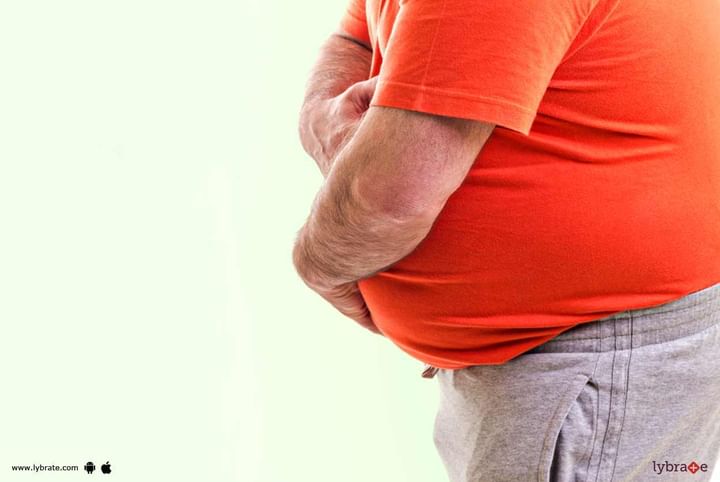Ascites - Know Its Causes & Treatment In Ayurveda!
What is ascites?
Ascites is the build-up of an abnormal amount of fluid inside the abdomen. The problem may keep the patient from moving around comfortably. Approximately 80 to 90 % of patients of chronic/end-stage liver disease develop ascites.
Causes of ascites -
The most common cause of ascites is cirrhosis of the liver. Drinking too much alcohol is one of the most common causes of cirrhosis of the liver.
Different types of cancer, heart problem, low protein level, some type of infections can also cause this condition.
Symptoms of ascites -
* Swelling in the abdomen
* Problem in moving around easily.
* Weight gain
* Sense of fullness
* Bloating
* Sense of heaviness
* Nausea - vomiting.
* Loss of appetite.
* Indigestion.
* Swelling in the lower legs
* Shortness of breath
Diagnosis of Ascites -
* Fluid sample - A sample of fluid from your abdomen may be taken using a needle. This fluid will be checked for signs of disease, such as cancer or an infection. This test may help point to the cause of the ascites.
* Imaging - USG of whole abdomen, MRI or CT scan is very useful to diagnose ascites.
Complications of ascites -
Ascites can make eating, drinking, and moving around difficult. It can also make it hard to breathe. Ascites can lead to abdominal infections, that is SBP Spontaneous bacterial peritonitis which may cause kidney failure.
1. Abdominal pain, discomfort and difficulty breathing: These problems may occur when too much fluid builds up in the abdominal cavity. This may limit a patient's ability to eat, walk and perform daily activities. Moving around is difficult for the patient.
2. Infection: The fluids that build up in the gut as a result of ascites could become infected with bacteria. When this happens, the condition is called spontaneous bacterial peritonitis. It usually causes fever and abdominal pain. The diagnosis is generally made by taking a sample from the abdominal cavity as described above (ie, by performing a paracentesis). Spontaneous bacterial peritonitis is a serious condition that requires treatment with IV antibiotics. After recovery from this infection, long-term treatment with oral antibiotics is needed to keep the infection from recurring.
3. Fluid in the lungs: Abdominal fluid fills the lung (mostly on the right side). This results in shortness of breath, cough, hypoxemia (lack of oxygen in the blood) and/or chest discomfort.
4. Kidney failure: End-stage of cirrhosis of the liver can lead to kidney failure. This condition is called hepatorenal syndrome. It is rare, but is a serious condition and may lead to kidney failure.
How is ascites treated?
In modern medicine, they provide some symptomatic relief only in the severe condition they remove a large amount of fluid from the abdomen through needle this procedure called paracentesis. but Ayurveda has the power to reduce abdominal fluid without any surgical intervention. Ayurvedic medicine help to reduce entire accumulated fluid through digestive tract only.
Ayurveda suggests a number of steps to ease your ascites.
* Cut back on your salt intake. Avoid salt substitutes that contain potassium.
* Cut back on the number of fluids you drink, strictly restrict water intake take, use cow milk instead of water to avoid further accumulation of water in the abdomen.
* Stop drinking alcohol.
* Natural Ayurvedic diuretics are very helpful to reduce fluid in the abdomen and also helps to reduce edema and will help to regenerate liver tissue.
* Ayurvedic medicine treats the root cause of ascites - liver disease and treat all other complication related to disease without any side effects.
* Nectar like herbs of Ayurveda boost immunity, stimulate appetite and support the digestive system.
* The root cause of any liver diseases is MANDAGNI according to Ayurvedic principle. Ayurvedic medicine treats this root cause and helps to recover from severe liver diseases including Cirrhosis of the liver.
Can ascites be prevented?
Certain steps to help you avoid cirrhosis of the liver and cancer can prevent ascites. These include:
* Stop drinking alcohol.
* Maintain a healthy weight.
* Exercise regularly.
* Stop smoking.
* Limit salt in your diet.
* Please do not drink water immediately after taking plain fatty foods like ghee.
Important points -
* Ascites is a condition in which fluid collects in spaces within your abdomen.
* As fluid collects in the abdomen, it can affect your lungs, kidneys, and other organs.
* Ascites causes abdominal pain, swelling, nausea, vomiting, and other difficulties.
* Stopping all alcohol intake,
* maintaining a healthy weight,
* exercising, not smoking, avoiding fatty foods
* limiting salt intake can help prevent liver disease, cirrhosis or cancer that may lead to ascites.
* Ascites can be cured by restricting diet, lifestyle changes and with Ayurvedic treatments but it may vary in different patients depends on the severity of disease general immunity of the patient and other complications.
One should consult and discuss with an Ayurveda liver specialist before deciding upon any medication.



+1.svg)
